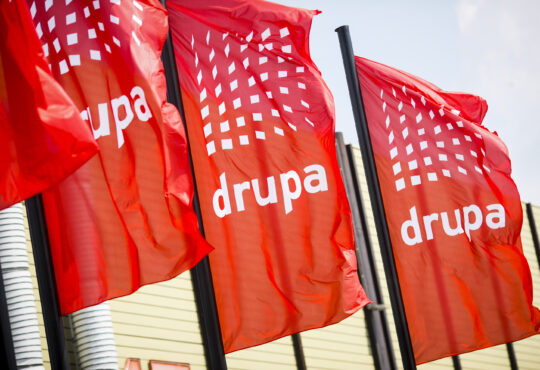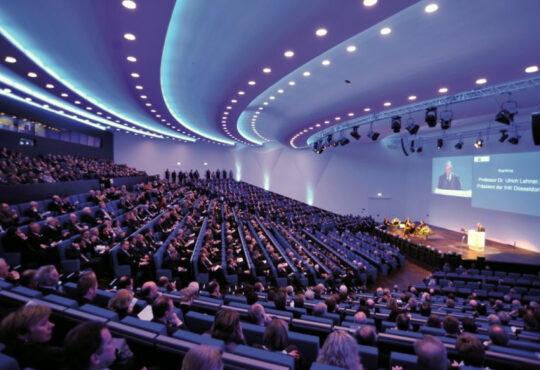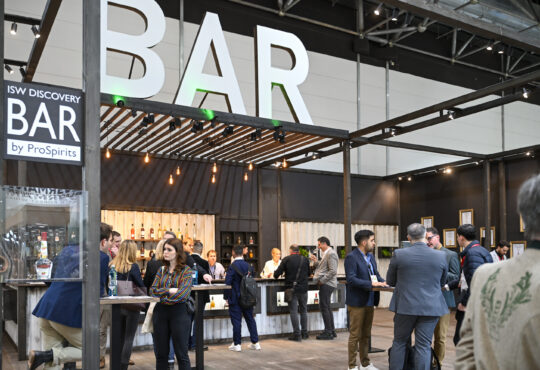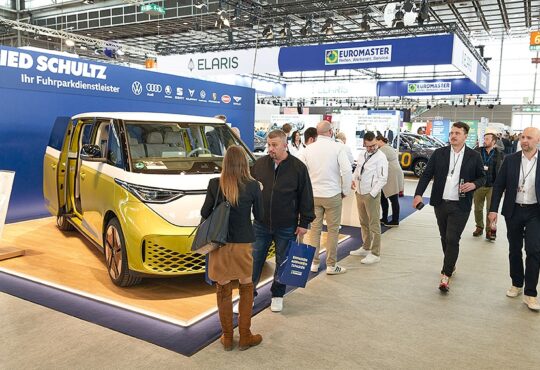#GED21: A world without trade fairs?
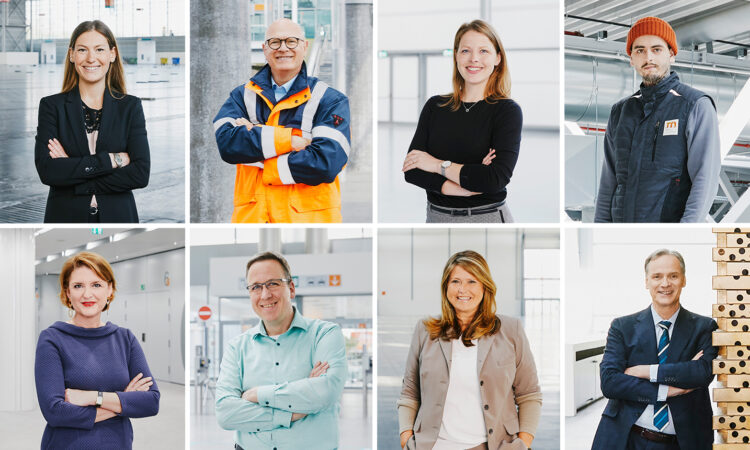
No way! The evidence for this lies in our events abroad. No sooner were trade fairs allowed again in China and Russia than halls there filled. In Germany surveys also revealed that purely digital events are not a permanent solution for most exhibitors as physical trade fairs remain indispensable for business. On the occasion of Global Exhibitions Day (GED) therefore, some of our colleagues will report exactly what makes them confident about the re-start of trade shows. We are ready!
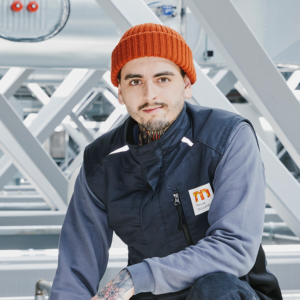
Everything as it always was – and yet completely different: Alexander Kantor continues doing his inspection rounds and coordinating repair jobs. As a Hall Inspector the 27-year old makes sure the exhibition halls of Messe Düsseldorf are always in a flawless condition, both technically and visually. And this is guaranteed during the pandemic just as it was before. What he is missing though are the people. “During stand construction and dismantling as well as during the events I am usually the first person to contact for customers and stand construction companies, the person to help them out and who knows who to call,” says Kantor and adds: “What’s more, short-term work has severely restricted personal contacts with colleagues.”
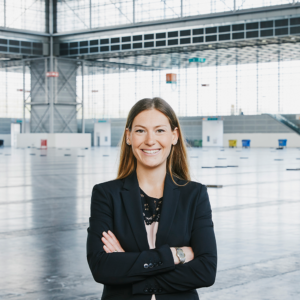
Everything ready for rebooting
The pandemic proved a watershed for all colleagues. Lena Maria Brümmer from the team of the world’s biggest packaging trade fair interpack sums it up: “We had to learn that the success of an event is no longer primarily in our hands but now extremely depends on rapidly changing exogenous factors such as infection conditions, lockdown provisions and travel restrictions.”
As drastic as this current situation is, there is just as many positive signs. “Since March we have gone live with the registrations for interpack 2023 and have received very many applications within a very short time,” reports Brümmer. She is also optimistic about the events scheduled in Cairo in December 2021. “Since April trade fairs have been on again there and the region is an exciting future market. This is why we have expanded our presence there even further and will also hold Food Africa in addition to pacprocess MEA.
Things are back on track again abroad
The picture is also similar for Düsseldorf’s numerous other international No. 1 trade fairs and their satellite events all over the world. In the 2nd half of 2020 alone, our Chinese subsidiary, Messe Düsseldorf Shanghai, organised six trade fairs with over 3,200 exhibitors and 160,000 trade visitors. Ten events in total are planned for this year. Early this year also saw the re-start of the Russian business. Russia’s leading fashion trade show, CPM – Collection Première Moscow, kicked off the series in February with 10,762 buyers and 550 presented fashion brands. This was followed in late April by NEFTEGAZ with 450 exhibitors from 23 countries and more than 14,000 visitors. Messe Düsseldorf Moscow will organise twelve own and cooperation events, participations and conferences in 2021.
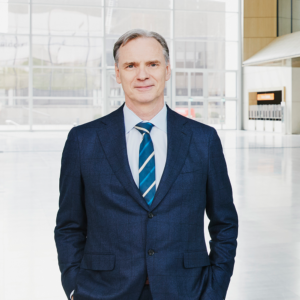
Our President & CEO, Wolfram N. Diener, also sees this as a positive signal for Germany as a location: “Trade fairs will also play a central role for the economy in future. After all, industries require platforms for presentation, information, exchange and networking,” says Diener who goes on to say: “After an intense time of digital communication the desire for personal encounters is also strong in business life. Physical trade fairs offer that human factor – which is so imperative for building trust.” The numbers bear him out: in a survey conducted by the Association of the German Trade Fair Industry, AUMA, among 427 exhibiting companies 76% lamented the lack of opportunities to recruit new customers caused by cancelled trade fairs, 84% complained about non-existent personal networking and some 60% miss the chance to display their new products physically.
Valuable trade fairs
Add to this their impact on the economy as a whole: according to the ifo institute, trade fairs contribute approximately EUR 28 billion to Germany’s economic output in “normal” years. Apart from the industries directly involved such as trade fair organisers, exhibition stand construction companies and exhibitors, it is above all hotels, food service establishments, forwarders, taxi drivers and retailers in the trade fair cities that benefit from the events. In Düsseldorf alone this adds up to EUR 1.66 billion trade fair and congress-induced sales and EUR 36.3 million tax revenue annually. These effects are currently missing: the trade fairs cancelled from March 2020 to May 2021 have so far entailed losses of EUR 40 billion across Germany, according to the AUMA association.
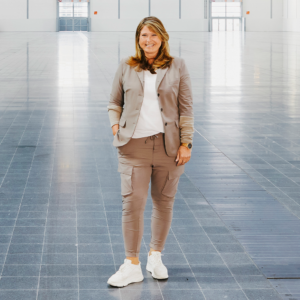
This is why it is all the more important for things to get started again. Nicole Funke from the team of the world’s biggest wine and spirits trade fair ProWein is optimistic: already three quarters of the exhibitors originally registered for ProWein 2020 have applied for ProWein 2022. Many others have announced their repeated exhibitor presence. For ProWine Hong Kong in September as well as for ProWine Shanghai in November she expects to sell at least 75% of the space rented for the previous event. “The COVID crisis has clearly shown that a wine and spirits trade fair has to be a physical event. Here all the senses are appealed to, wines and spirits have to be tasted,” stresses Nicole Funke and concludes: “virtual presentations and networking can’t do this.”
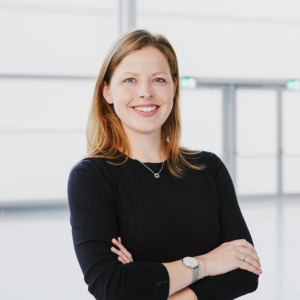
Digital alone is not an alternative
An AUMA survey confirms this picture also across multiple industries. 79% of the surveyed companies view digital events as no or at least not a permanent alternative. Messe Düsseldorf has also created new virtual events allowing enterprises to present themselves, network and gather information during COVID times. In April 2021 exhibitors from 35 countries and some 45,000 visitors from 155 nations accessed the content of virtual.drupa. Vivien Scheffran from the team of drupa, the world’s biggest trade fair for print technologies, stated that despite the high turnout of the virtual event “the global community’s longing to meet again at drupa 2024 in Düsseldorf at the latest, remains unchanged. The digital formats we now have developed will enhance the physical trade show and provide the biggest value added for our customers.”
It’s all in the mix
The fact is, 48% of the companies surveyed by AUMA will also bank on both physical trade fairs and their digital supplements. Wolfram N. Diener underscores the benefits of such hybrid events: “Live streams, on-demand content and exhibitor profiles will allow people to take part without being on site physically. This means our exhibitors are reaching out to more potential customers simultaneously by extending the trade fair into the digital realm. Together they all form a community that can be active 365 days a year. This consolidates the leading position of Düsseldorf’s No. trade fairs as central platforms for their respective industry – during the course of the physical trade fairs and beyond, for the rest of the year.”
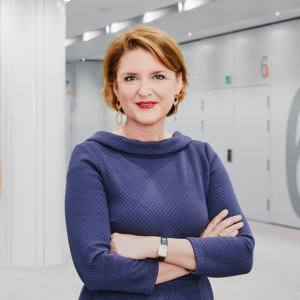
For congresses, meetings and conferences the situation is similar. Subscribing to this Annette Walz, Director Innovation & Community Engagement at Düsseldorf Congress, says: “Even before the pandemic it was clear: congresses and business events increasingly need to be digitally enhanced, new formats are wanted.” This was her brief when she started her career at Messe Düsseldorf’s subsidiary in the middle of lockdown and since then she has seen a tremendous technological acceleration of this sector. “What was thought to be a further development and future proofing is now an absolute must-have,” summarises Annette Walz. And this commitment has borne fruit: in 2020 Düsseldorf Congress organised half of its events in a hybrid or virtual format – from general assemblies and special-interest congresses to community events. “Furthermore, we served customers as a partner for live streams on site for the first time – and were awarded the job for the following year right away,” rejoices Annette Walz. “Be it physical, hybrid or virtual – we are ready.”
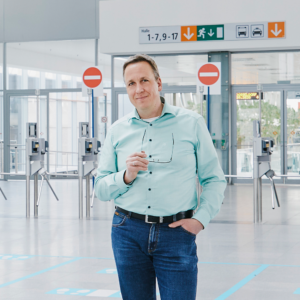
Everything is ready to go
Messe Düsseldorf already held CARAVAN SALON as a physical event last year. Markus Leuker, Director Occupational Safety and Health, emphasises: “With our comprehensive Hygiene and Infection Protection Concept we have provided proof that successful trade fairs with the greatest protection possible for all parties involved are also feasible in COVID times.“ This was ensured by numerous measures such as limited attendance, 8,000 notice boards, 1,600 sanitizer dispensers and 600 metres of droplet guards. “In this way we were able to welcome some 107,000 visitors to the first major German trade fair after the lockdown last year – a first re-start – and the second is sure to come.”
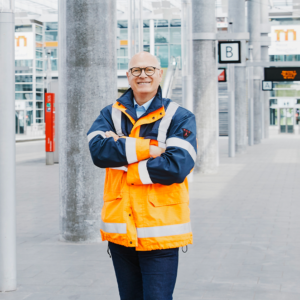
Once that time rolls round again, Ian Hume, Director Event Technology and Logistics, and his team will be the first to welcome guests: “I am confident we will once again welcome up to 70,000 exhibitors, visitors and service providers after COVID – arriving at two metro stations, numerous bus stops, taxi stands as well as 20,000 parking spaces. So the world is welcome to return, we are ready to go.”




